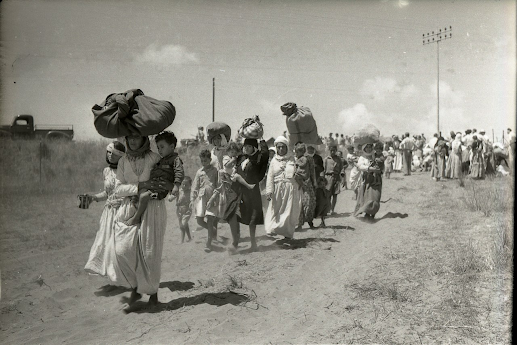Some years ago, at a conference on Palestine at Columbia University in Manhattan, through my friend Bashir Abu-Manneh, I met the leading Palestinian historian now active. Rashid Khalidi, the holder of the Edward Said Chair of Modern Arab Studies at Columbia, is a powerhouse of scholarship, courage and intellectual energy. At the end-of-conference party where Bashir introduced us, Rashid told me of his interest in Ireland and Irish history. And indeed the parallels and connections between Ireland and Palestine are striking: shared histories of British control, of partition, of forms of colonialism. Shared histories, also, of late-colonial war and of dissent. These connections have been studied by writers as different as Conor Cruise O'Brien, Ian Lustick and Joe Cleary. The recent death of former Lord Mayor of Dublin Ben Briscoe reminds us that Irish political sympathies have not always run in favour of the Palestinians - Briscoe's father presided over the visit to Dublin in the 1930s of Vladimir Jabotinsky, the brilliant intellectual father of Revisionist (rightwing) Zionism, who came to meet De Valera.
These various links and points of comparison have received thus far piecemeal scholarly treatment. But Rashid Khalidi is intent on giving them extended attention. On several visits to Dublin - one last year as a visiting fellow at Trinity College's Long Room Hub - he has set himself the task of getting into the necessary archival research to push forward this project.
Khalidi was in Dublin again last May, and we organised for him to speak at Maynooth University. His chosen topic was 'The Hundred Years War on Palestine'. This is the title of his 2020 book, a very fine history of the attacks on Palestine which began with the Balfour Declaration of 1917.
Introducing Rashid to a Maynooth audience on May 22 last, I felt it was impossible not to mention the fact that we were meeting only 8 days after the date of the 'Declaration of Independence' of Israel, and in the broader historical context of the commemoration of the Nakba, which really began in March 1948. Indeed, I noted, May 22 was the 75th anniversary of the Tantura massacre, when up to 200 Palestinian civilians were murdered by members of the Alexandroni Brigade of the Haganah at a village south of Haifa.
Rashid gave a wide-ranging talk, summarizing his book but ranging beyond it and bringing his analysis of the continuing war on Palestine up to date. Stressing the fact that Zionism needs to be understood as a settler-colonial project, and not just a Jewish nationalism, and stressing also the continuous, direct and crucial involvement of the great powers in the assault on Palestine from 1917 to the present, the talk offered a superb capsule account of the situation in Palestine and of the potential for resistance.
I have written a short essay recounting Rashid's talk, for the Dublin Review of Books. My warm thanks are due to Maurice Earls for making this possible, and also I am indebted to Eve Patten of Trinity College Dublin, who hosted Rashid's visits to Trinity. And of course I am indebted to Rashid for his combination of grit and intelligence.
Here is the DRB article:


No comments:
Post a Comment